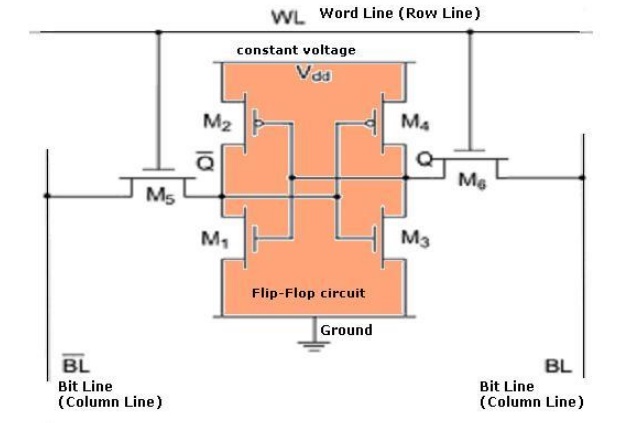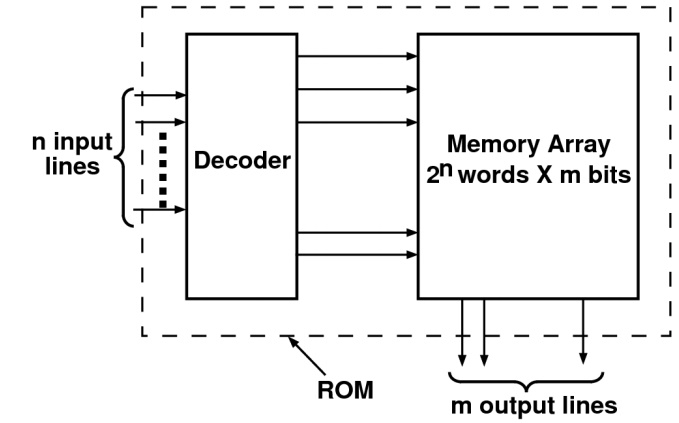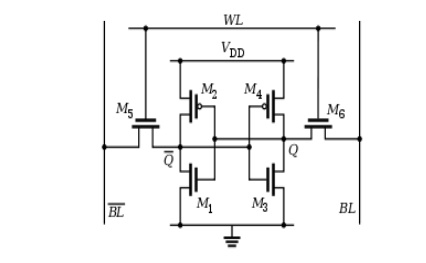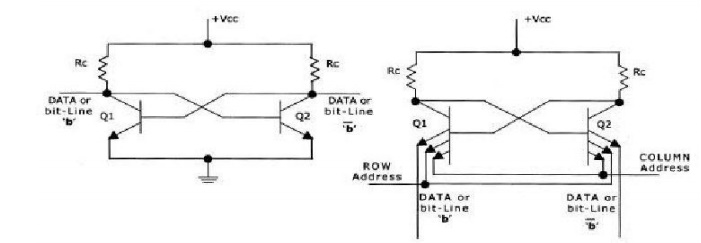Chapter: Digital Electronics : Memory Devices
Important Short Questions and Answers: Digital Electronics - Memory Devices
MEMORY DEVICES
1.
What is meant by memory Expansion? Mention its
limit.
The
memory expansion can be achieved in two ways: by expanding word size and
expanding memory capacity.
Limitations:
1.
Memory
capacity upto 16Mbytes.
2.
24
address lines and 16 data lines.
2.
What are the advantages of static RAM and
Dynamic Ram?
Static RAM:
·
Access
time is less.
·
Fast
operation.
Dynamic Ram
·
It
consumes less power.
·
Cost is
low.
3.
What is difference between PAL and PLA?
PLA:
Ø Both AND and OR arrays are programmable and
Complex
Ø Costlier than PAL
PAL:
Ø AND arrays are programmable OR arrays are fixed
Ø Cheaper and Simpler
4.
Implement the exclusive or function using ROM.
·
Can
implement multi-input/multi-output logic functions inside of ROM.
·
Data
outputs are the logic functions and the address lines are the logic function
inputs.
·
We
create a ROM Table to store the logic functions.
·
When an
input (or address) is presented, the value stored in the specified memory location
appears at the data outputs.
·
Each
data output represents the correct value for its logic function
5.
Compare Dynamic RAM with Static RAM.
·
Static
Ram is very costly.
·
Dynamic
Ram is cheaper.
·
Static
Ram contains Transistors.
·
Dynamic
Ram contains Capacitors.
·
Static
Ram is used in L1 and L2 cache.
·
Dynamic
Ram is used in system RAM.
6.
Mention few applications of PLA and PAL.
·
Implement
combinational circuits
·
Implement
sequential circuits
·
Code
converters
·
Microprocessor
based systems
7.
What are the different types of programmable
logic devices?
·
PROM
·
PLA
·
PAL
·
GAL
8.
Draw the structure of a static RAM cell.

9.
List the advantages of PLDs.
·
low and
fixed (two gate) propagation delays (typically down to 5 ns),
·
simple,
·
low-cost
(free),
·
design
tools.
10.
What is PAL?
PAL is
programmable array logic, PAL consists of a programmable AND array and a fixed
OR array with output logic.
11.
What is access time and cycle time of a memory?
Access
time is the maximum specified time within which a valid new data is put on the
data bus after an address is applied.
Cycle
time is the minimum time for which an address must be held stable on the
address bus in read cycle.
12. Implement a 2-bit multiplier using ROM.

13.
How the memories are classified?
It is
classified into two types:
·
volatile
·
non-volatile
memory
14.
Draw the logic diagram of a static RAM cell and
Bipolar cell.


15.
What is volatile and non-volatile memory?
The
memory which cannot hold the data when power is turned off is known as volatile
memory.
The
memory which can hold the data when power is turned off is known as
non-volatile memory
16.
Give the advantages of RAM.
·
Read and
write the data.
·
Data is
accessed by using address of the memory location.
·
Higher
speed.
Related Topics